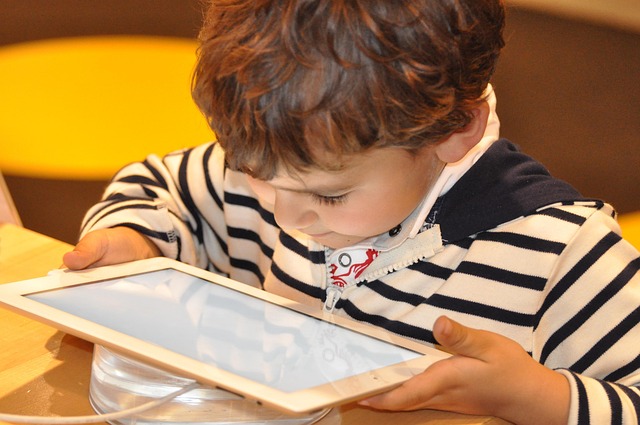# AI Transformations: How Intelligent Systems Are Shaping the Future of Work and Daily Living
Artificial Intelligence (AI) has emerged as a transformative force in various sectors, fundamentally altering how we work and live. The rapid advancements in intelligent systems are not merely trends; they signify a paradigm shift that is reshaping our everyday experiences and professional landscapes. This article delves into the multifaceted impact of AI on work environments and daily living, exploring its implications, benefits, and challenges.
## The Evolution of Work in the Age of AI
Historically, the workplace has undergone significant changes, from the Industrial Revolution to the dawn of the digital age. Today, AI stands at the forefront of this evolution, redefining roles and responsibilities. Intelligent systems are increasingly capable of handling repetitive tasks, allowing human workers to focus on more complex and creative endeavors. For instance, AI-driven automation tools are streamlining processes in industries such as manufacturing, logistics, and customer service, resulting in increased efficiency and reduced operational costs.
Moreover, the integration of AI into the workplace is fostering a new era of collaboration between humans and machines. Collaborative robots, or cobots, are designed to work alongside human employees, enhancing productivity while ensuring safety. This synergy enables workers to leverage AI’s analytical capabilities, making data-driven decisions that can lead to more innovative outcomes. The result is a workforce that is not only more efficient but also more engaged, as employees are freed from mundane tasks to pursue higher-level strategic initiatives.
In addition, AI is transforming recruitment processes. Traditional hiring methods often rely on subjective judgments, which can lead to biases. However, AI-driven recruitment platforms analyze vast amounts of data to identify the best candidates based on objective criteria. This shift not only enhances the quality of hires but also promotes diversity and inclusion within organizations. As companies embrace these intelligent systems, they are better equipped to build teams that reflect a variety of perspectives and experiences.
## Daily Living: The Personal Touch of Intelligent Systems
While the workplace is experiencing significant changes due to AI, our daily lives are also being profoundly affected. Smart home technologies are perhaps the most visible manifestation of AI in everyday living. Devices such as smart speakers, thermostats, and security systems utilize machine learning algorithms to adapt to individual preferences and behaviors. This personalization enhances comfort, convenience, and security, allowing users to manage their homes more efficiently than ever before.
Healthcare is another domain where AI is making substantial inroads. Intelligent systems are revolutionizing patient care through predictive analytics and personalized medicine. For example, AI algorithms can analyze medical histories and genetic information to recommend tailored treatment plans. Furthermore, telemedicine powered by AI enables remote monitoring and diagnosis, ensuring that patients receive timely care without the constraints of geographical barriers. As a result, healthcare becomes more accessible, efficient, and patient-centered.
Transportation is also undergoing a metamorphosis thanks to AI. Autonomous vehicles are no longer a distant dream; they are gradually becoming a reality. Companies like Tesla and Waymo are leading the charge in developing self-driving technology that promises to reduce accidents, improve traffic flow, and lower transportation costs. Public transportation systems are also leveraging AI to optimize routes and schedules, enhancing the overall commuting experience. In this context, AI not only improves the efficiency of transport systems but also contributes to environmental sustainability by reducing carbon emissions.
## Challenges and Ethical Considerations
Despite the myriad benefits that AI brings to work and daily living, the integration of intelligent systems is not without challenges. Concerns about job displacement loom large as automation takes over tasks traditionally performed by humans. While AI can enhance productivity, it also raises questions about the future of work and the need for reskilling and upskilling the workforce. Organizations must invest in training programs to prepare employees for the new roles that will emerge in an AI-driven landscape.
Ethical considerations also come to the forefront as we navigate the complexities of AI. Issues related to data privacy, algorithmic bias, and accountability are critical in ensuring that intelligent systems are developed and deployed responsibly. For instance, AI algorithms trained on biased data can perpetuate existing inequalities, leading to unfair outcomes in hiring, law enforcement, and lending practices. Establishing ethical guidelines and regulatory frameworks is essential to mitigate these risks and ensure that AI serves the greater good.
Furthermore, the reliance on AI raises questions about human agency and decision-making. As intelligent systems become more autonomous, there is a growing concern about the potential erosion of human oversight. Striking the right balance between utilizing AI’s capabilities and maintaining human judgment is crucial in ensuring that technology complements rather than replaces our decision-making processes.
## Conclusion: Embracing the Future with AI
The transformative power of AI is undeniable, reshaping the future of work and daily living in profound ways. As intelligent systems become increasingly integrated into our lives, they offer unprecedented opportunities for efficiency, creativity, and personalization. However, it is imperative to navigate the challenges and ethical considerations that accompany this transformation. By fostering a culture of continuous learning, embracing diversity, and prioritizing ethical standards, we can harness the full potential of AI to create a future that benefits all.
In conclusion, the journey towards an AI-driven world is just beginning. As we embrace these intelligent systems, we must remain vigilant stewards of technology, ensuring that it serves humanity’s best interests while enhancing our work and daily lives. The future is bright, and with thoughtful engagement, we can shape it to be inclusive, innovative, and inspiring.











